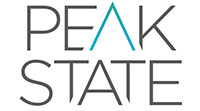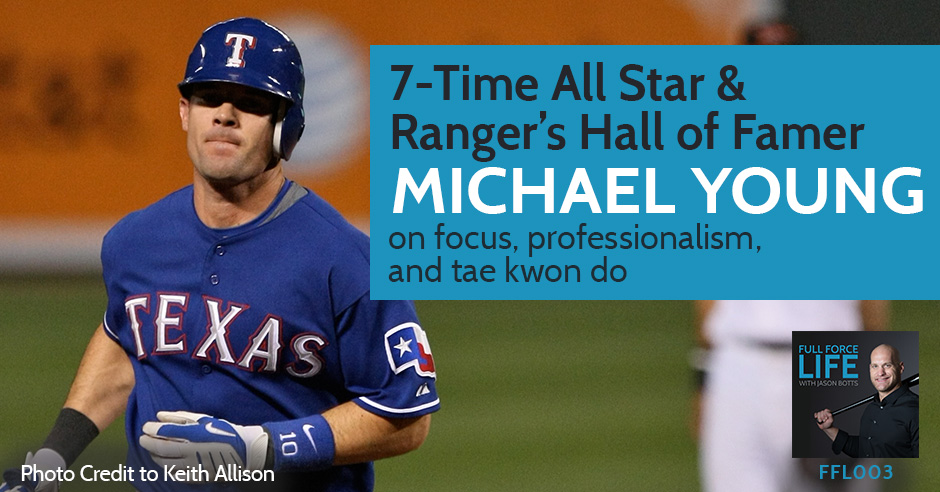
Welcome to this episode of the Full Force Life. Today’s special guest is former Major Leaguer, Michael Young. Michael, fourteen seasons in the Major Leagues. He’s got a long accolade list so hang in here with me a minute. He had 300, on the dot, for his career, just unbelievable. 2375 hits, seven time All-Star, Gold Glove Award, 2005 American League Batting Title. Still the most impressive feat, I think it still sometimes gets overlooked a little bit when we’re talking about Mikey, five consecutive years of 200 hits or more. One of only two Major League middle infielders who ever did that. When you talk about getting 200 hits in a year and being able to do it for five years in a row, not only is that just remarkable skill and focus and consistency, but the ability to be durable as well. Just go out there with the grind of a Major League season day after day after day and get the job done.
Mikey, for a long time, he was the face of the organization when I was there with the Texas Rangers and deservingly so. Because once you hear him speak, you’ll hear his voice, just the man that he is and the leader and the type of presence and respect that you naturally give him. It’s because he gives it as well. I think of a story of Mikey that didn’t come up in the interview. Back in 2004, I was invited to my first Major League spring training. I got there about a month early. I was ready to go and working out on those backfields, getting in shape for the big league camp. I think Ian Kinsler was out there with me at the time, we were roommates together. We both have played the Double A level the year before and had our breakout years together.
Mikey comes walking over, he wanted to take some hacks too, I hadn’t met Michael yet at that point. Michael comes up and says, “Hey, Jason. How you doing? Tremendous year last year.” He started reciting some stats. He did the same thing for Ian. I can’t remember if they had much of a background together, but I knew for myself, I had never met Michael yet. He knew who I was, he knew my background. He just looked at me and said, “We’re counting on you. We’re going to do big things this year. We need you.” He said the same thing to Ian. Ian went and had more of a longer career. The thing that struck with me was just the type of person, the type of leader who can go and be aware of anybody at any level of the organization. He wasn’t just concerned with making people feel comfortable or confident or needed and appreciated at just the Major League level. He was paying attention and focusing on guys at any level of Minor Leagues and making sure that they were going to be counted on and that they needed to be ready and be prepared.
I just thought that was something that made me feel great at the time. I just thought it was a great story of just the type of leader and the type of vision that he would always produce for his team. I think whether you are a baseball player or you are someone who runs a division or runs an organization in any way, you can take a lot from this interview with Michael. He’s a pro’s pro, when you hear his explanation of what being a professional means to him, you’re going to be blown away with that answer. Without any further ado, I hope you really enjoy this episode of the Full Force Life because whether you’re a baseball player or someone off the field, it’s going to be of value. That’s what this podcast means to me. Here you are, Michael Young.
Listen to the podcast here:
Michael Young – Focus and Professionalism
Hey, everybody. This is Jason Botts with the Full Force Life podcast. In the opener, I ran down our guest today and all his accolades and his accomplishments, a very long and distinguished career in the Major Leagues, a former teammate of mine. It’s definitely an honor and a pleasure to have Michael Young with us on the show today. Michael, thanks for being here.
You got it, Jason. Thanks for having me, buddy.
I’m going to jump right in because I know you can handle it. I know you’re a California boy like myself. Growing up, was baseball the only sport you played? If you played other ones, what sports were you involved in ? Who were your heroes, your roles models growing up?
I played all sports, which sadly, I think that doesn’t happen as much anymore with younger kids. I played baseball, baseball is easily my first love, baseball, basketball, soccer, football. I had favorite baseball players of course. I had Don Mattingly, Kirby Puckett, Tony Gwynn. I was a big Laker fan growing up in Southern California, big Magic Johnson fan. Fortunately for me, I was in a household with two parents. I don’t take that for granted. I was very, very fortunate that my folks were very supportive of what I wanted to do, which was play ball. I was very lucky as a kid, I had a supportive family. I got very, very lucky in a sense that I was able to identify in an early age what I wanted to do, and that was play ball.
That’s awesome. When you talk about those guys as your role models, was there anything that you try to emulate as far as your own game, mechanics or routines?
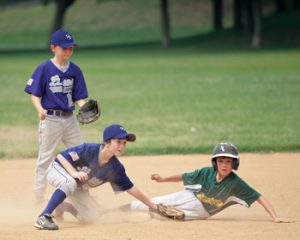
Not really. When I was that young, I think this should be the case for most kids, I just loved to play and have fun. I wanted to hit a ball, slide into first, get up, slide into second, slide into third. I just wanted to play ball and have fun. At a very young age, I wasn’t really able to identify parts of specific athletes that I really wanted to emulate. As I got a little older, I think that became a little easier for me. You get into high school, you start noticing little small things about guy’s swings and it becomes a little easier to recognize what you like about them. I think a little older into high school, I started to identify those really small intricate parts of the game.
The high school age. What’s an example of a player at that stage that you emulated?
When I got into the big leagues, I had one handed follow through, but when I was a kid, I had two handed follow through. This is just one example. I remember I was watching David Justice playing when I was like a freshmen or a sophomore in high school. I remember thinking, “Man, that guy’s got the sweetest looking swing.” I don’t know what looks so cool about it, but I started watching and watching him and he had this one handed follow through. I started doing it in my backyard. That was when I started having a one handed follow through. Watching David Justice literally gave me the inspiration and motivation to have a one handed follow through for the rest of my, what turned out to be the rest of my baseball playing career. It’s just something that when you watch a big leaguer, it makes a big impact when you’re young, if you think it just looks right. I started doing it and it looked right and it felt right, I just rolled with it.
That’s great. That was a sweet swing.
It was sick.
From my own experience, because in California, I was more up north.
Will Clark, same deal.
Absolutely, just picturesque swing. I didn’t start switch hitting until later in my career. I think I was like nineteen years old at the time. I had taken about five million swings pretending I was Will Clark at that point in my life. I had already ingrained the muscle memory. David Justice has another great swing.
For sure.
I will dive right into this question because this was the one that really launched the podcast to begin with, the whole idea of the podcast and the background story for it and really the podcast in general. There was one night, I was writing a blog about focus with some of the athletes that I worked with and just using some analogies and metaphors. I wanted to tell a story about what focus was to me. I kept getting hit with these pictures and this vision of Michael Young in the tunnel, down below in the batting cages at the ballpark in Arlington. It just stood out so clearly in mind, the state that you would enter. Just in practice, the level of focus, the intensity, it just stood out in my mind. I had this idea, I was like, “I got to get in touch with Michael and ask him what was going through his mind when he practiced and what was important to him about it.” After a while, I was like, “When I get in touch with him, I might as well make it a bigger interview and I might as well just make it a podcast.” That’s really how this whole idea for the Full Force Life podcast got kicked off. That’s my question is, when you practice with that focus and that intensity, what were the little things that you were paying attention to?

One, I appreciate you saying that. That means a lot. Anytime a teammate says something like that, it always makes you feel good. I know that whether it was you or countless other guys I’ve played with, all my teammates had an impact on me. It feels good to know that I had a similar impact. I’m very big on having this vision in your head on what you want to be and how you want to do it. For me, baseball was my life, that’s the one thing that I was able to identify from an early age. People asked me all the time, “Do you feel lucky about having a big league career?” I never said I felt lucky. I felt like I earned everything I had, but one thing where I was very lucky was I was able to identify at such an early age what I wanted to do. You have, say a brilliant college student, he or she might not have any idea really what they wanted to do in their life. In that sense, I got very, very lucky. For me, whenever I practice, I really wanted to live up to this vision of what I thought I could be. That was where I had all my focus.
Every time I practice, I wanted to make sure that I was measuring up to what I thought I was supposed to be as a player. In my head, I felt like I had a responsibility to you, to the rest of my teammates to make sure I was prepared, make sure I was ready and make sure I was able to play winning baseball. I wasn’t a high draft pick or anything like that, but I do feel like I knew what was really inside me, I knew if I really focused and worked at it, I knew what I could become. I wasn’t going to live anything to chance. I was going to try and become as good as I was supposed to be. As you know, preparation and work, there’s no substitute for either one. If you really go down and you work as hard as you possibly can, prepare as hard as you can, then you’re going to give yourself an opportunity to go out and have success. For me, that’s all I could think about. I really wasn’t thinking about those things when I was going to practice and I didn’t know I was having that kind of an impact on the people who were watching me. Every time I hop in that cage, I felt like that was my opportunity for those next, say five minutes, that was my opportunity to make myself a little better.
That’s great. Creating that vision, when did that become a part of who you are? Was that at early age or professional level? When did that start for you?
That was early in what I wanted to be, but at the same time, now you have to develop the tools on how to work. It’s one thing to have a vision in your head, it’s another thing now to try and put them in play as a competitor and as an athlete. You’re trying to make sure that that’s coming out in the field. Fortunately for me, I had a great hitting coach in Rudy Jaramillo who was able to talk those things out of me and I was able to tell him exactly what I wanted to be as a player and what kind of hitter I envisioned myself being. He and I worked together on a plan, on a cage routine that could potentially get me there. I stuck with it. He stuck with me. I think just like anything else, it’s never just you, there’s always people around you that are doing the heavy lifting right there with you. I’m no different, I had a ton of people that were helping me out.
That’s when you really have any kind of small success, it’s great to share it with other people. Anytime you fall in your face and fail, which is inevitable, it’s nice to have people that you could rely on, who are going to help you out. That’s where I was very lucky. I had a great hitting coach who was by my side the whole way. Anytime I was in the cage and I felt something off, I felt I can bounce ideas off him. I was in a safe place where I felt like if something didn’t feel right, I never felt insecure. I felt like I can tell him, “This doesn’t feel right. What do you see?” There were times he would tell me, “I don’t know. I don’t know what I see. Let’s just keep working through it.” For me, the communication between me and Rudy, my hitting coach, was off the charts and that really helped me develop as a hitter.
Absolutely. In my opinion, there’s no one better than Rudy.
He’s incredible.
His ability to communicate with each player individually was just awesome.
He’s awesome.
When you made an out or a series of outs, and I don’t want to necessarily say, I don’t know if you would use the word slump or not, but what was your process of if things weren’t going right, you mentioned it a little bit with Rudy, was there anything that got you back to the basics? What was your strategy for if you weren’t swinging the bat the way you wanted to, what was your strategy to get back on track?
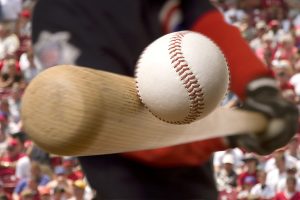
I’m sure you heard the same thing, Jason. “Hitting is 50% mental.” One guy would say it’s 60% mental. For me personally, I felt like it was 100% mental. Every day you’d hit, whether it’s spring training or season, you hit, you hit, you hit. For me, there’s no way your muscle memory just falls on its face overnight or in a matter of days. We’ve been hitting so much. For me, if I’m hitting the ball on the ground at third base every time, getting around a hitter, it means I’m flying out of my swing, which usually means I’m getting too geeked up as a hitter. I’m getting too wound up. I think the biggest thing is to know who you are as a player, know who you are as a hitter. For me, I recognized that I’m the kind of guy that I tend to get very geeked up when I hit for games.
The biggest adjustment I would make is a lot of times, and I really wanted to go out there and play well, I would tell myself if I was doing well, “Hey man, listen. Lay off the gas. Put it in neutral. Tomorrow, don’t think about going four for four or three for four, think about coming in there and having one good at-bat.” That’s my first one. I would try and really try and take my mind off the results. I started doing this in Triple A. I had a piece of paper, I’d give myself a black or red for every at-bat. Black was a good at-bat and red was a bad one, very simple. If I had a 3-1 count and I hit a line drive to the center fielder, I’m 0 for 1, that’s a black. If I got the same 3-1 count, I hit a bleeder over the first baseman’s head, I’ll take the hit, but I know that’s not going to hold up over the long haul, that’s a red. If I was in a bad stretch, I would tell myself, “Listen, lay off the gas. Tomorrow, we’re just going to rack up on some blacks.”
I don’t care how many hits I get, but I’m going to get some blacks tomorrow. I can control that part of the game. I can’t control if a line drives into fall, I can’t control if a lawn dart’s going to sit. I think I have a better chance of controlling the quality of my at-bat. That’s usually what I would try and focus on. It was big for me because it would lay a lot of tension off my shoulders and I wouldn’t be thinking about how many hits I was going to get. I just think about try and have a good at-bat and just really narrow my focus level.
Great. One of the questions I do want to ask you was the idea around quality at-bats. That’s a great explanation to your process of how you broke down within an at-bat, what made it successful, let alone just the result of actually getting the hit or getting on base. Red was the bad at-bat. There’s no such thing as failure, there’s only feedback. How would you analyze a poor at-bat and come up with an adjustment that you need to make for either your next at-bat or for the next day?
It’s amazing. If you really narrow your focus level on having good at-bats on one small thing. It’s like, “I swung at that one pitch and it’s out of the zone.” Boom, done. That’s my adjustment for my next at-bat. Or, “I might’ve got a little big that’s why I fell off that fastball in the middle and stay hidden. I’ll put in and play hard.” Done. “I should’ve taken that pitch. I should have swung it that way.” They’re very easy adjustments once you take the result out of it and you really focus on the process. Things become very easy to identify what you want to get better. Conversely, if you have a good at-bat, it’s very easy to recognize what you did well. For me, it’d be one small thing then boom, I’m on to my next at-bat. I found that by doing that, by taking the result out of it, I was also able to really forget about at-bats, not really worry about them. Because it’s really hard. How many times, if you’re struggling, you hit a bullet and you’re out? You’re like, “Gah, again?” You’re dying for one of those hits to fall to get some momentum going. If you take that out, it’s a challenge, it’s definitely a skill mentally, you have to practice at it and work at it to make it a strength.
Beautiful. Along in the same lines, if you were to go and watch a twelve year old or thirteen year old and you wanted to stress to them, what was the most important about them, at their age and their development? If you were to go to watch a twelve year old play, what do you think a good game is for them?
I’d like to see some joy, a lot of smiling. I prefer to see a kid be aggressive. If the captain is swinging five balls over his head, I’d rather see that than him taking three balls down the middle. I prefer to see them go out and there and really push the envelope as a young kid. It doesn’t matter what sport you’re playing. As you get older and you start to figure the sport out a little more, it’s easy to pull the reins back a little bit and make some adjustments on that front. Be aggressive, enjoy yourself, have fun. At that point it’s really, really simple to make your adjustments from there. I would say, joy and really asserting yourself on the field, try and get in the middle of the action.
I told you the story about how you were the image of focus to me. If someone were to ask me, who was the most professional teammate I ever had, I would definitely put you at the very top of that list as well.
Thank you.
What does being a professional mean to you?
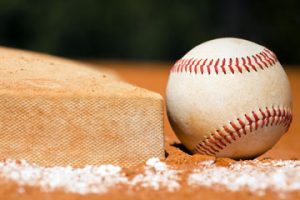
That’s a good question. I appreciate you saying that. Being accountable, being prepared, not making excuses and following a couple of easy, easy steps. Not making excuses if you fail, owning some failure. Nothing wrong with failing, that’s your opportunity for some growth. If I have a game where things happen to go my way, I’d deflect and give my teammates the credit. If a guy had a great game, it doesn’t matter who they are, but when I got in the clubhouse, doesn’t matter if we won or lost, I would look around and try to find the guys that did really, really well and make sure I congratulate them on a good game. If they had a tough one, I’d be the first to try and go over there, I wasn’t always successful, I try and go over and pat them on the back and let them know that there’s always tomorrow. It’s always just keep my eyes open and really being available for my teammates and trying to help them out any way I could. The biggest thing is just making sure that I was prepared, making sure that when the game started, my teammates knew I’d be ready to roll.
Now, we’ll go in a little bit more towards life stuff. What has baseball taught you that has helped you live a greater quality of life off the field?
Man, that’s a good one. Being in a clubhouse and being made fun of all the time is big. I think the biggest thing is I learned to laugh at myself. I don’t take myself too seriously. I think that’s important. I can laugh at myself, I can recognize when I screw up. I think the biggest thing is I’m not afraid of failing. I dealt with failures so much that I really recognize it as an opportunity for some growth. That’s big. That’s the inevitable roadblocks we’re all going to hit. I’m not afraid of them, I know they’re going to happen. I accept it and I try to learn from them.
You told me that in the last couple of years, since retiring, you’ve gone into Taekwondo. Does that feed the competitive fire within you? If so, how was your progress in that?
It’s been good. My next belt I’ll be getting is black in Taekwondo. I started this the day I retired. I do Taekwondo one day a week and jujitsu the other day. I go twice a week. It’s been good. It’s cut my body good. I’m more flexible now than when I played. I needed something competitive too for exercise, especially right when my career ended. Golf is great and all, I love playing golf, but I couldn’t just rely on that for my competitive outlet. I needed something a little different, something a little more unique. I think the biggest thing that I challenge myself at the end of my career, I was like, “I’m really going to go out of my comfort zone right here and try something different.” This was it. I wanted a contact sport, I wanted something that was going to push me to a level I hadn’t been to before. It’s been going great. There are days in there where it’s hard. In jujitsu, I’m grappling with a guy who’s heavier than me, who outranks me. I’m doing everything I can to not get tapped out or not get choked out. When I finish up my day that day, I feel like I’m a little better. That to me is always the point of exercise and feeling good about yourself when your day at the gym is done. It’s been fun. When I get black in Taekwondo, I’ll reassess how much longer I want to keep doing this. I got ways to go before I get that last belt.
A lot of the work that I do with people is about helping them through different life transitions. I had lots of struggles through my transition of being an athlete to having to develop other parts of who I am. What are some key points, in your opinion, of what does it take to make that transition from being someone who’s been an athlete their whole life and to getting involved in other things? I know there’s going to be a lot of other ball players that listen to this, either they’re struggling now or maybe they might be struggling somewhere down the road someday. What’s your advice for the guys who spent their whole life playing baseball and needing to get into other things when it’s over?
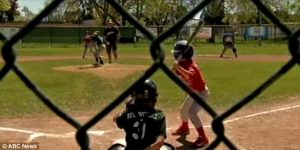
I think identifying exactly what you want to do is important, but I think it’s also important to not have this really strict timetable in yourself because whenever you find yourself under the time gun is when you start making bad decisions, when you start doing stuff you’re going to regret. As an athlete, I think it’s important. Do have some detox time and say, “I’m going to relax a little bit and take some time for myself.” I think it is important to really, really exercise and make sure your body stays healthy. The last thing I wanted to do when I finished playing was look in the mirror and be like, “Damn, it’s time to get in the gym.” That could be too late at that point. Keep your body healthy, I think that’s very important. Keep your eyes and ears open as to what you really want to do. It’d be amazing just by listening to people, you’ll have a little bit of clarity on what you want to do in your life. Don’t feel like you have to be under the gun time wise, just listen. If you’re interested in something, ask some questions. I think if you’re open minded about those kind of things, it will come to you. Be open minded and, like I said, don’t feel like you have to make decisions overnight.
This has been freaking awesome, man. I’m so appreciative of it all.
Thanks, bro. You got it.
Two little fun questions here to wrap it up. What’s the one little thing that you can think of off the top of your head that is really cool about being in the Major Leagues that an average person might not know about? I always had this vision of all the coffee selections in the clubhouse. They always make the joke that in Triple A you are drinking old coffee from the day before and you get to the Major Leagues, you’re drinking Starbucks. Is there anything that just jumps out of your mind that’s really, really cool about the big leagues that people might want to know?
Tons. I remember the first time I got to big leagues, I didn’t have a roommate in a hotel. “This is awesome, man.” I love my roommates. Usually you pick yours. I love roommates. I remember the first time I was able to get some downtime, some time to myself in my own room was pretty incredible. That probably stands out to me as I step off the field, that and the coffee hit the nail in the head. That was big. I’m a huge coffee drinker too. That’s huge. Usually, every time you have a day game and the breakfast bread is ridiculous. I think it’s those ball parks that I always grew up playing in, baseball as a way to bring out the little boy in you. I think that’s a very true thing. A lot of people say it and I think it’s very true. Growing up in Southern California, playing in Dodgers Stadium, playing in Anaheim, playing those day games in New York and in Boston. You have those pinchy moments where I’m on the field, I was playing shortstop, sitting on that dirt during the game and be like, “I’m in the middle of New York right now playing in the house that Ruth bulit in a day game in front of 50,000.” I didn’t have very many of those. I was always one to keep my eye on the prize. Those real pinch yourself moments are, if you really pay attention, they’re all everywhere in the Major Leagues. I’m glad, at least I took the time out to enjoy a few of them.
That’s great. Now, the probably single most important question I could possibly ask you. It’ll probably determine how I see you for the rest of my life. Since you’re a California boy, I’m hoping this goes one way, but you’re also a resident of Texas. If you only could choose one burger …
In-N-Out.
There we go.
In-N-Out or Whataburger, that’s not even close. God, people try to convince me all time, In-N-Out is not even close. Not even close.
Thank you. The joke I always make is if you want a Whataburger, what I can do is go to In-N-Out and get my truck and I could drive over it a few times.
Exactly. I’d give you that and you’re good.
I’m good.
Throw it in my armpit, put it out a few times and I’ll give it back to you and there’s your Whataburger. You’re all good.
There it is.
Sweet.
I appreciate it. Michael, I appreciate you as a guest on the show. It’s been awesome. I know this episode will be valuable to people both who’s firing on the field and off the field as well. I just appreciate your time and the hurdles that it took to get us here online together to be able to make this a great show. Thank you again.
I appreciate it, Jason. Thank you for having me, man. Best of luck to you. You’re a great teammate. I wish you the best in your new endeavor, brother.
Thanks, man. I appreciate it.
You got it, man.
